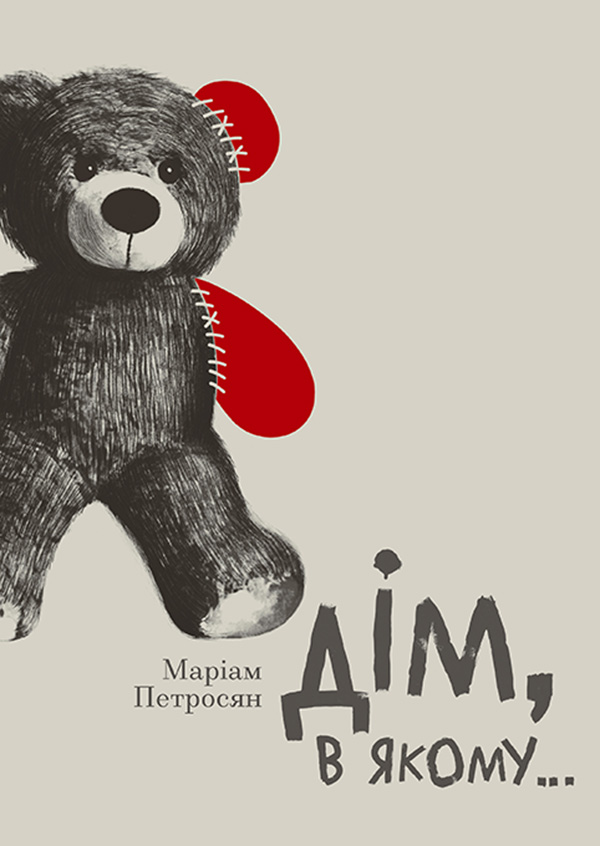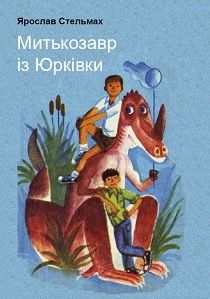Читати книгу - "Егоїстичний ген"
Шрифт:
Інтервал:
Додати в закладку:
25. Brockmann, H. J., Grafen, A., and Dawkins, R. (1979) Evolutionarily stable nesting strategy in a digger wasp. Journal of Theoretical Biology 77, 473—96.
26. Brooke, M. De L. and Davies, N. B. (1988) Egg mimicry by cuckoos Cuculus canorus in relation to discrimination by hosts. Nature 335, 630—2.
27. Burgess, J. W. (1976) Social spiders. Scientific American 234 (3), 101—6.
28. Burk, T. E. (1980) An analysis of social behaviour in crickets. D.Phil. thesis, University of Oxford.
29. Cairns-Smith, A. G. (1971) The Life Puzzle. Edinburgh: Oliver and Boyd.
30. Cairns-Smith, A. G. (1982) Genetic Takeover. Cambridge: Cambridge University Press.
31. Cairns-Smith, A. G. (1985) Seven Clues to the Origin of Life. Cambridge: Cambridge University Press.
32. Cavalli-Sforza, L. L. (1971) Similarities and dissimilarities of sociocultural and biological evolution. У збірці Mathematics in the Archaeological and Historical Sciences (ред. F. R. Hodson, D. G. Kendall, and P. Tautu). Edinburgh: Edinburgh University Press. pp. 535—41.
33. Cavalli-Sforza, L. L. and Feldman, M. W. (1981) Cultural Transmission and Evolution: A Quantitative Approach. Princeton: Princeton University Press.
34. Charnov, E. L. (1978) Evolution of eusocial behavior: offspring choice or parental parasitism? Journal of Theoretical Biology 75, 451—65.
35. Charnov, E. L. and Krebs, J. R. (1975) The evolution of alarm calls: altruism or manipulation? American Naturalist 109, 107—12.
36. Cherfas, J. and Gribbin, J. (1985) The Redundant Male. London: Bodley Head.
37. Cloak, F. T. (1975) Is a cultural ethology possible? Human Ecology 3, 161—82.
38. Crow, J. F. (1979) Genes that violate Mendel’s rules. Scientific American 240 (2), 104—13.
39. Cullen, J. M. (1972) Some principles of animal communication. У збірці Non-verbal Communication (ред. R. A. Hinde). Cambridge: Cambridge University Press. pp. 101—22.
40. Daly, M. and Wilson, M. (1982) Sex, Evolution and Behavior, 2nd edition. Boston: Willard Grant.
41. Darwin, C. R. (1859) The Origin of Species. London: John Murray.
42. Davies, N. B. (1978) Territorial defence in the speckled wood butterfly (Pararge aegeria): the resident always wins. Animal Behaviour 26, 138—47.
43. Dawkins, M. S. (1986) Unravelling Animal Behaviour. Harlow: Longman.
44. Dawkins, R. (1979) In defence of selfish genes. Philosophy 56, 556—73.
45. Dawkins, R. (1979) Twelve misunderstandings of kin selection. Zeitschrift für Tierpsychologie 51, 184–200.
46. Dawkins, R. (1980) Good strategy or evolutionarily stable strategy? У збірці Sociobiology: Beyond Nature/Nurture (ред. G. W. Barlow and J. Silverberg). Boulder, Colorado: Westview Press. pp. 331—67.
47. Dawkins, R. (1982) The Extended Phenotype. Oxford: W. H. Freeman.
48. Dawkins, R. (1982) Replicators and vehicles. У збірці Current Problems in Sociobiology (ред. King’s College Sociobiology Group). Cambridge: Cambridge University Press. pp. 45–64.
49. Dawkins, R. (1983) Universal Darwinism. У збірці Evolution from Molecules to Men (ред. D. S. Bendall). Cambridge: Cambridge University Press. pp. 403—25.
50. Dawkins, R. (1986) The Blind Watchmaker. Harlow: Longman.
51. Dawkins, R. (1986) Sociobiology: the new storm in a teacup. У збірці Science and Beyond (ред. S. Rose and L. Appignanesi). Oxford: Basil Blackwell. pp. 61–78.
52. Dawkins, R. (1989) The evolution of evolvability. У збірці Artificial Life (ред. C. Langton). Santa Fe: Addison-Wesley. pp. 201—20.
53. Dawkins, R. (1993) Worlds in microcosm. У збірці Humanity, Environment and God (ред. N. Spurway). Oxford: Basil Blackwell.
54. Dawkins, R. and Carlisle, T. R. (1976) Parental investment, mate desertion and a fallacy. Nature 262, 131—2.
55. Dawkins, R. and Krebs, J. R. (1978) Animal signals: information or manipulation? У збірці Behavioural Ecology: An Evolutionary Approach (ред. J. R. Krebs and N. B. Davies). Oxford: Blackwell Scientific Publications. pp. 282–309.
56. Dawkins, R. and Krebs, J. R. (1979) Arms races between and within species. Proceedings of the Royal Society of London B 205, 489–511.
57. De Vries, P. J. (1988) The larval ant-organs of Thisbe irenea (Lepidoptera: Riodinidae) and their effects upon attending ants. Zoological Journal of the Linnean Society 94, 379—93.
58. Delius, J. D. (1991) The nature of culture. У збірці The Tinbergen Legacy (ред. M. S. Dawkins, T. R. Halliday, and R. Dawkins). London: Chapman and Hall.
59. Dennett, D. C. (1989) The evolution of consciousness. У збірці Reality Club 3 (ред. J. Brockman). New York: Lynx Publications.
60. Dewsbury, D. A. (1982) Ejaculate cost and male choice. American Naturalist 119, 601—10.
61. Dixson, A. F. (1987) Baculum length and copulatory behavior in primates. American Journal of Primatology 13, 51–60.
62. Dobzhansky, T. (1962) Mankind Evolving. New Haven: Yale University Press.
63. Doolittle, W. F. and Sapienza, C. (1980) Selfish genes, the phenotype paradigm and genome evolution. Nature 284, 601—3.
64. Ehrlich, P. R., Ehrlich, A. H., and Holdren, J. P. (1973) Human Ecology. San Francisco: Freeman.
65. Eibl-Eibesfeldt, I. (1971) Love and Hate. London: Methuen.
66. Eigen, M., Gardiner, W., Schuster, P., and Winkler-Oswatitsch, R. (1981) The origin of genetic information. Scientific American 244 (4), 88—118.
67. Eldredge, N. and Gould, S. J. (1972) Punctuated equilibrium: an alternative to phyletic gradualism. У збірці Models in Paleobiology (ред. J. M. Schopf). San Francisco: Freeman Cooper. pp. 82—115.
68. Fischer, E. A. (1980) The relationship between mating system and simultaneous hermaphroditism in the coral reef fish, Hypoplectrus nigricans (Serranidae). Animal Behaviour 28, 620—33.
69. Fisher, R. A. (1930) The Genetical Theory of Natural Selection. Oxford: Clarendon Press.
70. Fletcher, D. J. C. and Michener, C. D. (1987) Kin Recognition in Humans. New York: Wiley.
71. Fox, R. (1980) The Red Lamp of Incest. London: Hutchinson.
72. Gale, J. S. and Eaves, L. J. (1975) Logic of animal conflict. Nature 254, 463—4.
73. Gamlin, L. (1987) Rodents join the commune. New Scientist 115 (1571), 40—7.
74. Gardner, B. T. and Gardner, R. A. (1971) Two-way communication with an infant chimpanzee. У збірці Behavior of Non-human Primates 4 (ред. A. M. Schrier and F. Stollnitz). New York: Academic Press. pp. 117—84.
75. Ghiselin, M. T. (1974) The Economy of Nature and the Evolution of Sex. Berkeley: University of California Press.
76. Gould, S. J. (1980) The Panda’s Thumb. New York: W. W. Norton.
77. Gould, S. J. (1983) Hen’s Teeth and Horse’s Toes. New York: W. W. Norton.
78. Grafen, A. (1984) Natural selection, kin selection and group selection. У збірці Behavioural Ecology: An Evolutionary Approach (ред. J. R. Krebs and N. B. Davies). Oxford: Blackwell Scientific Publications. pp. 62–84.
79. Grafen, A. (1985) A geometric view of relatedness. У збірці Oxford Surveys in Evolutionary Biology (ред. R. Dawkins and M. Ridley), 2, pp. 28–89. Oxford: Oxford University Press.
80. Grafen, A. (1990) Sexual selection unhandicapped by the Fisher process. Journal of Theoretical Biology, 144, 473–516.
81. Grafen, A. and Sibly, R. M. (1978) A model of mate desertion. Animal Behaviour 26, 645—52.
82. Haldane, J. B. S. (1955) Population genetics. New Biology 18, 34–51.
83. Hamilton, W. D. (1964) The genetical evolution of social behaviour (I and II). Journal of
Увага!
Сайт зберігає кукі вашого браузера. Ви зможете в будь-який момент зробити закладку та продовжити читання книги «Егоїстичний ген», після закриття браузера.
























